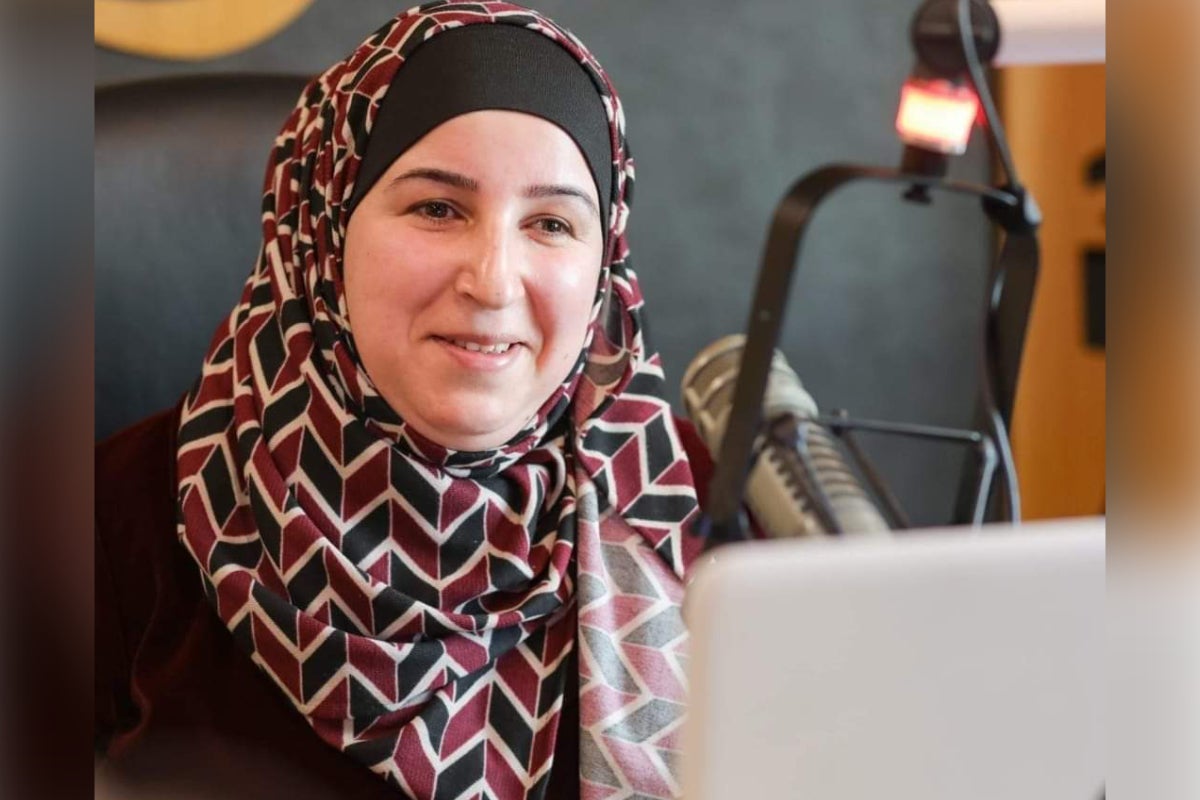In the words of Israa Abu Dawod: “My vision impairment won’t stop my media career.”
Date:

Israa Abu Dawod, 32, was born with a complete vision impairment. She lives with her parents and brother (also with vision impairment) in Hebron in the West Bank. Both of her parents have health issues and are unable to work. Israa holds a bachelor’s degree in Arabic Language Teaching, and hosts a weekly radio programme on the rights of people with disabilities. Israa was among the 300 women who received cash for work opportunities by UN Women in Palestine. Generously supported by the UN Central Emergency Response Fund (CERF), UN Women’s Cash for Work Programme offers economically vulnerable women, particularly those with disabilities, temporary work opportunities coupled with vocational trainings and protection services, to help them pursue more sustainable livelihood.
“I was born blind. But my vision impairment did not stop me from pursuing my academic and career goals. Since 2016, I have volunteered with a local NGO that works to empower women with disabilities by helping them match their skills with work opportunities. Apart from volunteering, I also host a weekly radio programme called “The Sixth Sense” where I discuss issues that people with disabilities face and, advocate for their rights to disability-responsive education, public transportation, and decent work.
The show is aired only once a week and the remuneration I receive is not enough to support myself financially. I am also left with a lot of free time feeling frustrated at home.
I was very happy when the NGO where I volunteer contacted me to offer me a cash-for-work opportunity. I could choose where to work. Passionate about media, I benefited from the opportunity in my current field.
Now I spend most of my time at the radio station. More airtime is dedicated to highlighting challenges that people with disabilities, including women, face and ways to better integrate them socially and economically into our society. Apart from enriching my media experience, this opportunity has allowed me to train my voice and improve my voiceover skills to produce media reports, one of my career objectives.
Spending more time at the radio also gave me the chance to collaborate more with the staff. Thanks to my linguistic academic background, I have been helping them with proofreading and other tasks. Overtime, I have built closer relationships with the radio staff, paving the way for more collaboration in the future.
This opportunity has also strengthened my personality. I am less nervous about expressing my opinion and communicating with others. I now feel more independent and self-reliant and can meet my own needs. One of the things that I have always wanted to do was to buy myself a ring. When I finally did, I had that great feeling of self-appreciation.
Work keeps me busy. At work, I feel less stressed and frustrated. Even when it gets hectic, I still enjoy it and prefer it to staying at home. For me, work is like a sanctuary, a place that relieves my anxiety and fills me with positive energy.
Given the scarcity of jobs, cash for work opportunities can be a lifeline for a lot of women, particularly for those with disabilities. I just wish it lasted more than three months. But I think I have been able to prove myself at work, increased my media experience and built my network. Hopefully, this will only be the starting point for a sustainable media career.